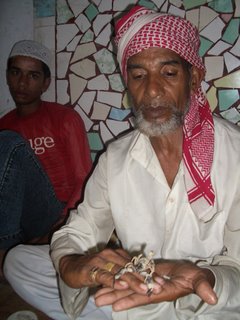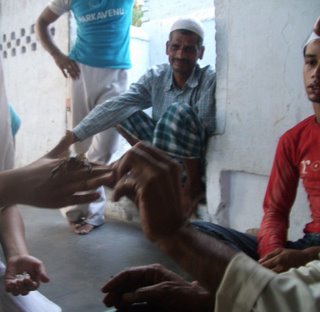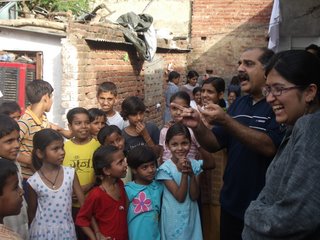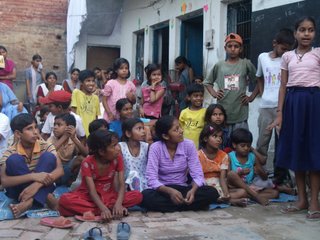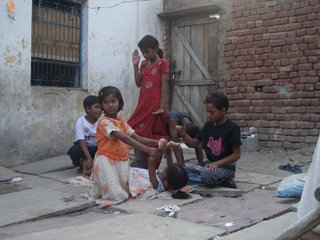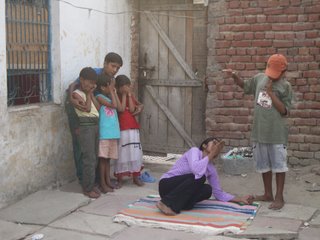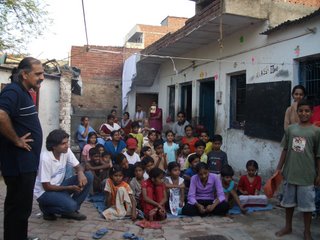On the train from Itarsi to Delhi last week, my seat happened to be comfortably nestled amongst a throng of Mongoloid-featured folk. Mostly in order to distract myself from the dizzying 40-something-degrees heat, I decided to spend the morning observing them to try and figure out where they were from. Reminiscing my China days, I absorbed with amusement the orange-dye of many of the young men’s hairstyles, the multiple ear piercings, pumped muscles, and their decidedly un-Indian basketball jerseys. I came to the conclusion that they were probably Bhutanese, or Nepali. Yet the fact that their foreign-tongue talks would sporadically be interspersed with loud, heartfelt Hindi tunes perplexed me, and seemed to rule out any non-Indian lineage. I decided to observe the eldest amongst the group, a red-robed, bespectacled old man who would only pause his beaded-incantations to enquire about the price of a cold Coke or bottle of milk. He was too religious to be Chinese, I thought to myself, and the fact that they were traveling from Bangalore didn’t make it seem likely that he was Bhutanese.
After a while, one of the young men came and sat down next to me. He asked where I was going, what I did, why I got in at a godforsaken hour from a no-name station (only to have to kick one of them out of their seats). Next, it was my turn to ask questions, and I learned that they were Tibetans, traveling from their home (near Bangalore) to their schools (in Dehradun).
Tibetans? It had briefly crossed my mind that they could have been Tibetan, but I had quickly ruled it out, thinking that Tibetans would not behave or dress in the manner of these youth. His admission, to my surprise, shocked me. I realized that my perception of Tibetans had hitherto been completely shaped by Seven Years in Tibet, a biography of the Dalai Lama, and a random Tibetan-themed restaurant in Varkala. In seeming contrast to my co-passengers, the Tibetans of my imagination were all peace-loving, non-materialistic, deeply spiritual, traditional people. I turned to the red-robed elder, thinking that, like all cultural communities these days, it’s probably the elders that are the repositories of the age-old traditions recorded in history books.
Just as I turned, the elder picked up a half-empty bottle of water, felt that it was warm, and threw it out of the train window.
I thought about the fact that there was no running water left on the train. How the sweltering heat outside was only magnified by the hot air billowing through the coal-fired train. How I had slowly drank the warm water of my bottle, careful not to spill lest any drops be wasted.
How times change.
**************
From China, to Chennai, to Noida, I’ve creeped my way out west again. Though I would never have thought that Ahemedabad -- this land of sugaredeverythings -- would ever be ‘home’, that’s what it is right now.
I’m working here with Indicorps, an organization that aims to bring back people of Indian origin to India for service, for connecting back with a place that plays a large role in their identity. So far, it’s been a lot of fun. Last week found me at an Indicorps retreat in the hill station of Panchmarhi, Madhya Pradesh (the nearest train stop being Itarsi), taking a plunge in a not-so-clear lake, discovering the joys of eating freshly plucked sweetandsour mangoes, and learning from Indicorps fellows about the trials and travails of building entrepreneurs among slum youth in Kanpur, and building self-esteem of orphaned youth in rural Andhra Pradesh.
I don’t know for how long I will be here, or whether any of my crazy plans will materialize (the entrepreneurial bug still hasn’t left me). I do know that I have much to learn about the world around me, and about myself.
Hope you all are well, and am hoping that this magnet-spot will allow me to see many of you soon ;)
After a while, one of the young men came and sat down next to me. He asked where I was going, what I did, why I got in at a godforsaken hour from a no-name station (only to have to kick one of them out of their seats). Next, it was my turn to ask questions, and I learned that they were Tibetans, traveling from their home (near Bangalore) to their schools (in Dehradun).
Tibetans? It had briefly crossed my mind that they could have been Tibetan, but I had quickly ruled it out, thinking that Tibetans would not behave or dress in the manner of these youth. His admission, to my surprise, shocked me. I realized that my perception of Tibetans had hitherto been completely shaped by Seven Years in Tibet, a biography of the Dalai Lama, and a random Tibetan-themed restaurant in Varkala. In seeming contrast to my co-passengers, the Tibetans of my imagination were all peace-loving, non-materialistic, deeply spiritual, traditional people. I turned to the red-robed elder, thinking that, like all cultural communities these days, it’s probably the elders that are the repositories of the age-old traditions recorded in history books.
Just as I turned, the elder picked up a half-empty bottle of water, felt that it was warm, and threw it out of the train window.
I thought about the fact that there was no running water left on the train. How the sweltering heat outside was only magnified by the hot air billowing through the coal-fired train. How I had slowly drank the warm water of my bottle, careful not to spill lest any drops be wasted.
How times change.
**************
From China, to Chennai, to Noida, I’ve creeped my way out west again. Though I would never have thought that Ahemedabad -- this land of sugaredeverythings -- would ever be ‘home’, that’s what it is right now.
I’m working here with Indicorps, an organization that aims to bring back people of Indian origin to India for service, for connecting back with a place that plays a large role in their identity. So far, it’s been a lot of fun. Last week found me at an Indicorps retreat in the hill station of Panchmarhi, Madhya Pradesh (the nearest train stop being Itarsi), taking a plunge in a not-so-clear lake, discovering the joys of eating freshly plucked sweetandsour mangoes, and learning from Indicorps fellows about the trials and travails of building entrepreneurs among slum youth in Kanpur, and building self-esteem of orphaned youth in rural Andhra Pradesh.
I don’t know for how long I will be here, or whether any of my crazy plans will materialize (the entrepreneurial bug still hasn’t left me). I do know that I have much to learn about the world around me, and about myself.
Hope you all are well, and am hoping that this magnet-spot will allow me to see many of you soon ;)

